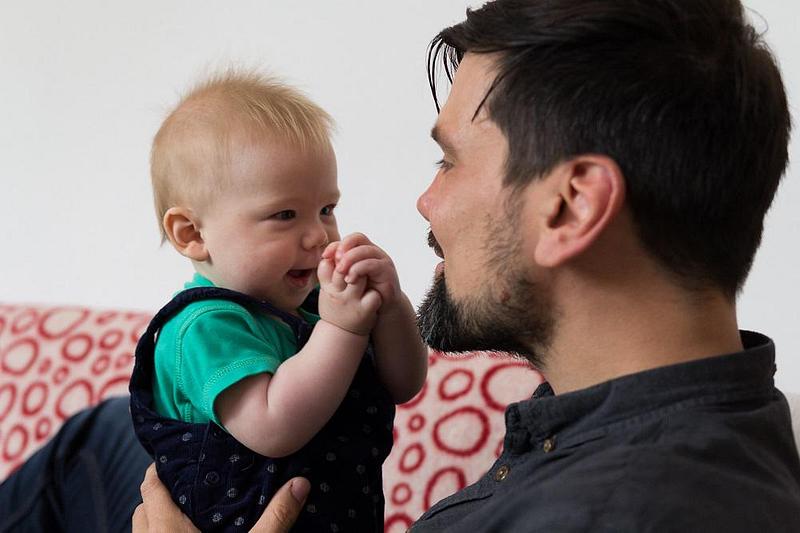Looking for more in Reading and Stories?
Why share songs and rhymes
Babies and young children naturally love music. Singing and joining in with rhymes is great fun for children - it also benefits their development in many ways.

Rhythm and Rhyme
Research has shown that babies respond well to beat and rhythm of language even before they are born. They are in tune with their mother’s heartbeat from an early stage, so a steady beat and the rhythm of songs and rhymes can be very soothing for them.
Songs and rhymes generally have a higher pitch that catches a baby’s attention better than regular speech. We also tend to use a slower pace and lots of repetition in songs and rhymes. This makes it easier for children to hear the individual sounds that make up words.
Learning Language
Learning sounds, and how they work together to form words, is key to language development. It’s also the first step on the journey to being able to read. Sounds are the building blocks of spoken language, and making the connection between words that are spoken and words that are written is key to learning to read.
Songs and rhymes for babies and children may also include actions – clapping hands, pointing, marching or jumping, for example. These actions reinforce the words, which helps children to remember them and grasp their meaning more easily. Actions also help to develop gross motor skills (e.g. co-ordination and balance) and fine motor skills (e.g. control over a pencil) as well as being great fun for little ones!
Building a Bond
Finally, singing and rhyming is a wonderful way for mums, dads and carers to bond with their children. Music is proven to help reduce stress levels and spending just a few minutes a day sharing a song or rhyme together can have a positive impact on everyone’s mental health. Many songs and rhymes involve tickles, cuddles and lots of eye contact – what better way to have fun and feel close to little ones!